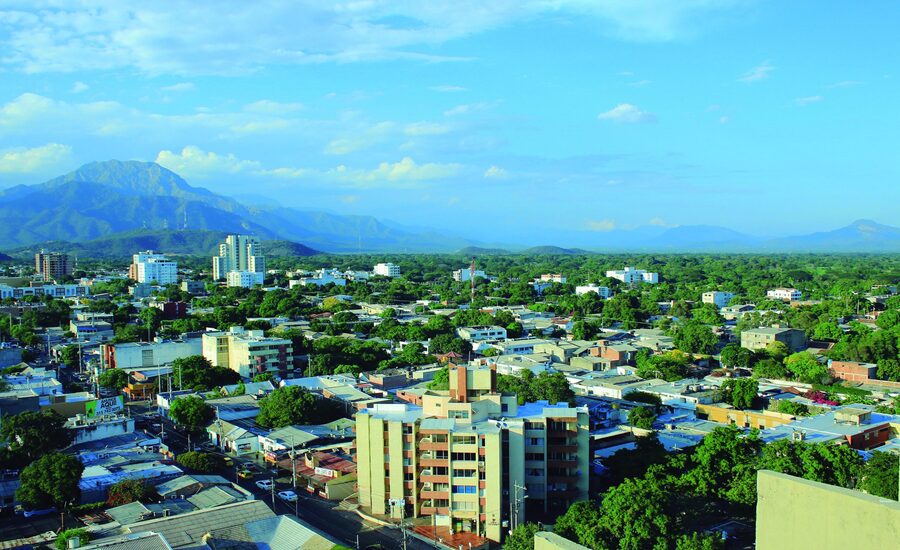Asotecnicos del Cesar Valledupar: Empowering Technical Professionals in the Region
Introduction
Technical education in Colombia has seen significant growth over the past few decades, with institutions and organizations emerging to meet the needs of an ever-evolving workforce. One of the most influential organizations in this landscape is Asotecnicos del Cesar Valledupar. Based in Valledupar, the capital of the Cesar Department, Asotecnicos has played a crucial role in promoting technical education, empowering students, and driving professional growth across the region. As the demand for skilled labor continues to rise, Asotecnicos has positioned itself as a key player in shaping the future of technical education in Colombia.
Founded with a vision of addressing the growing need for specialized technical skills, Asotecnicos del Cesar Valledupar has steadily built its reputation as a cornerstone of quality technical education. Its influence has reached far beyond its immediate geographical area, touching the lives of thousands of students, educators, and professionals. From offering specialized courses and certifications to building partnerships with local industries, the organization has set an example for other regions in Colombia and beyond.
This article delves into the history, mission, and impact of Asotecnicos del Cesar Valledupar, exploring how it has become a pivotal institution in the technical education sector. Additionally, it examines the organization’s role in fostering professional growth, adapting to modern challenges, and contributing to the socioeconomic development of the Cesar region. By understanding the journey of Asotecnicos and the scope of its work, one can appreciate the broader implications for technical education in Colombia and the pathways it creates for future generations.
The History and Founding Vision of Asotecnicos del Cesar Valledupar
The story of Asotecnicos del Cesar Valledupar began in response to a critical need for specialized technical training in the Cesar region. Valledupar, known for its rich cultural heritage and vibrant traditions, was historically rooted in agriculture, cattle ranching, and folklore. However, as the region modernized and industrialized, the need for a skilled workforce became increasingly apparent. This shift called for an educational response that would equip young people and professionals with the technical know-how to thrive in new economic landscapes.
Asotecnicos was established with the belief that technical education should not be seen as a secondary alternative to academic education but as a critical and equal pathway toward economic mobility and personal development. The founders envisioned an institution that would not only provide technical skills but also foster innovation, critical thinking, and a commitment to continuous learning. From its inception, the organization was committed to creating programs that responded to the needs of local industries, ensuring that students could find employment opportunities within their communities.
Wider range of technical disciplines
In its early years, Asotecnicos focused on trades that were directly relevant to the region’s economic pillars. Courses in agriculture, livestock management, and basic engineering were among the first offerings, designed to enhance the productivity of the local workforce. Over time, however, the organization expanded its scope to encompass a wider range of technical disciplines, including information technology, industrial design, and environmental sciences. This diversification of programs was key to positioning Asotecnicos as a leader in technical education, as it enabled the institution to remain relevant in the face of rapidly changing economic trends.
The success of Asotecnicos in its early stages can be attributed to its strategic partnerships with both the public and private sectors. Local businesses and industries were eager to support an institution that would provide them with a steady stream of skilled labor, and the local government recognized the long-term benefits of investing in technical education for the region’s development. These partnerships have only strengthened over time, allowing Asotecnicos to grow its infrastructure, expand its faculty, and increase its student enrollment.

The Role of Asotecnicos in Technical Education
Asotecnicos del Cesar Valledupar has established itself as a leading institution in technical education by offering a range of programs that cater to the specific needs of the region and beyond. Its curriculum is designed with a balance between theoretical knowledge and practical skills, ensuring that graduates are not only well-versed in their chosen fields but also prepared for real-world applications. This approach has made Asotecnicos a model for other technical institutions in Colombia.
One of the key aspects of the institution’s educational approach is its emphasis on hands-on training. Students at Asotecnicos are given opportunities to work with state-of-the-art equipment and technology, mirroring the tools and processes they will encounter in their professional careers. This practical focus ensures that graduates are not just knowledgeable but also experienced, making them highly attractive to potential employers. Moreover, the institution’s strong ties with local industries provide students with internship opportunities, further bridging the gap between education and employment.
Forward-thinking programs
Another significant component of Asotecnicos’ success is its commitment to innovation. The institution continuously updates its curriculum to reflect the latest technological advancements and industry trends. For example, in recent years, Asotecnicos has expanded its offerings in the fields of renewable energy, digital technology, and industrial automation. These forward-thinking programs prepare students for emerging industries and contribute to the region’s efforts to embrace sustainable development and technological progress.
Asotecnicos also plays an essential role in promoting inclusivity in education. Recognizing that technical education can be a pathway to social mobility, the institution actively works to make its programs accessible to a diverse range of students. It offers scholarships, financial aid, and flexible schedules to accommodate students from various socioeconomic backgrounds. This commitment to inclusivity not only broadens access to education but also strengthens the region’s workforce by ensuring that more individuals have the opportunity to develop valuable skills.
Impact on Professional Growth and Workforce Development
The contributions of Asotecnicos del Cesar Valledupar to professional growth and workforce development in the Cesar region are undeniable. Through its various programs and initiatives, the institution has had a lasting impact on the careers of its graduates and the prosperity of local industries. Asotecnicos graduates are well-equipped to enter the workforce with the skills and knowledge needed to excel in their respective fields, often finding employment in high-demand sectors.
For many students, technical education through Asotecnicos serves as a stepping stone to professional success. The institution’s reputation for providing high-quality training means that its graduates are sought after by employers not only in the Cesar region but throughout Colombia. Many graduates go on to become leaders in their industries, contributing to the growth and modernization of key sectors such as agriculture, manufacturing, and technology. By producing skilled professionals, Asotecnicos helps to ensure that the region’s economy remains competitive and capable of adapting to global trends.
Focus on workforce development
In addition to training students, Asotecnicos has implemented various professional development programs aimed at helping current workers enhance their skills and advance in their careers. These programs are designed for individuals who are already employed but wish to gain additional certifications, learn new technologies, or transition into different fields. By offering continuing education opportunities, Asotecnicos plays a pivotal role in ensuring that the region’s workforce remains adaptable and capable of meeting new challenges.
The institution’s focus on workforce development extends beyond the classroom. Asotecnicos actively engages with local businesses and industries to understand their needs and tailor its programs accordingly. This collaborative approach ensures that students are being trained in skills that are directly relevant to the local economy, while also providing businesses with the talent they need to thrive. The symbiotic relationship between the institution and local industry strengthens the overall economic fabric of the region.
Modern Challenges and Future Directions
Asotecnicos del Cesar Valledupar, like many educational institutions, faces modern challenges that require innovative solutions. One of the most significant challenges is the rapid pace of technological change. As industries across the world adopt new technologies, educational institutions must keep pace to ensure that their graduates are equipped with the skills needed for the jobs of the future. Asotecnicos has responded to this challenge by continuously updating its curriculum and investing in cutting-edge equipment and technology. However, staying ahead of the curve will require ongoing investment and a commitment to staying informed about global trends.
Another challenge is the growing demand for sustainability and environmental responsibility. Industries worldwide are being called upon to adopt more sustainable practices, and technical education institutions have a critical role to play in this transition. Asotecnicos has begun to incorporate sustainability into its curriculum, offering courses in renewable energy, environmental management, and sustainable agriculture. These programs not only prepare students for careers in growing industries but also position the institution as a leader in promoting environmentally responsible practices.
Empowering students and fostering
The rise of digital education also presents both challenges and opportunities for Asotecnicos. While online learning offers the potential for greater accessibility and flexibility, it also requires significant infrastructure and pedagogical adjustments. Asotecnicos has already begun to explore digital education solutions, offering hybrid courses that combine online instruction with hands-on training. Moving forward, the institution will need to continue adapting to the digital age while ensuring that the quality of education remains high.
Despite these challenges, the future of Asotecnicos del Cesar Valledupar looks promising. The institution is well-positioned to continue its leadership in technical education, thanks to its strong reputation, innovative programs, and deep ties to the local community. In the coming years, Asotecnicos is likely to expand its reach even further, offering more programs, building new partnerships, and increasing its influence in the region and beyond. By staying true to its mission of empowering students and fostering professional growth, Asotecnicos will continue to play a vital role in shaping the future of technical education in Colombia.

The Value of Partnerships: Collaborations for Growth
Asotecnicos del Cesar Valledupar’s success has been in large part due to its ability to forge strategic partnerships with a variety of stakeholders. These partnerships have not only enhanced the institution’s offerings but have also provided students with invaluable opportunities for real-world experience and professional networking.
- Public Sector Collaboration: The institution has worked closely with local government bodies to ensure that its programs align with regional economic development goals. By maintaining open channels of communication with policymakers, Asotecnicos helps to drive initiatives that benefit both its students and the local economy.
- Private Sector Engagement: Local businesses, particularly in sectors such as agriculture, construction, and technology, have partnered with Asotecnicos to provide students with internships, apprenticeships, and employment opportunities. These partnerships have led to a mutually beneficial relationship, wherein businesses gain access to skilled labor while students gain practical experience that enhances their employability.
- International Partnerships: Asotecnicos has also expanded its reach by establishing connections with international educational institutions and organizations. These partnerships facilitate the exchange of knowledge and resources, helping Asotecnicos stay at the forefront of global trends in technical education.
Conclusion
Asotecnicos del Cesar Valledupar stands as a beacon of progress in Colombia’s technical education landscape. Its mission to empower students through quality education and professional growth has transformed the lives of countless individuals and has had a lasting impact on the local economy. From its humble beginnings, Asotecnicos has grown into a key player in technical education, continually adapting to meet the challenges of an ever-changing world.
Through its focus on hands-on learning, innovation, inclusivity, and strong partnerships with both the public and private sectors, Asotecnicos has built a legacy of excellence. As the demand for technical skills continues to rise, institutions like Asotecnicos will play an increasingly important role in shaping the future workforce of Colombia and beyond.
The challenges that lie ahead—technological change, sustainability, and digital education—are significant, but Asotecnicos has demonstrated its ability to meet these challenges head-on. By continuing to innovate and expand its offerings, the institution is well-equipped to prepare the next generation of professionals to thrive in a rapidly evolving global economy. Asotecnicos del Cesar Valledupar is not just an institution of learning; it is a driver of regional development and a source of opportunity for all those who seek to build a better future through technical education.





